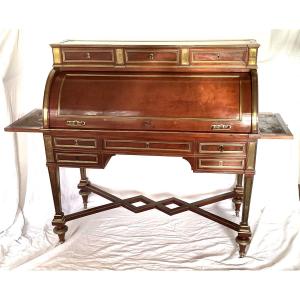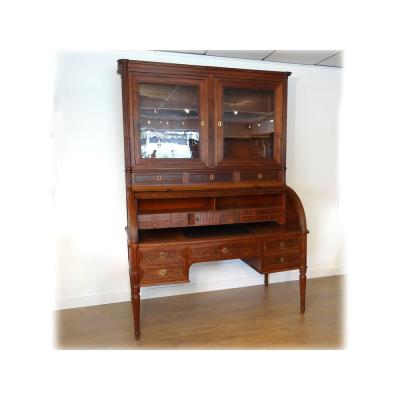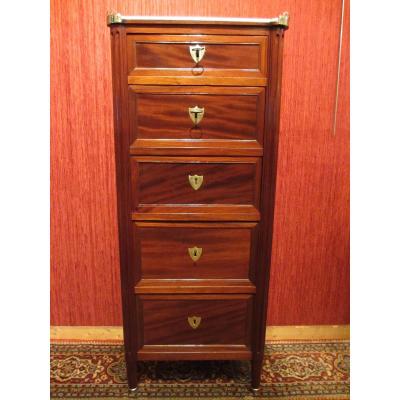The rigor of the lines, the panels framed in reserve, the slightly fluted canted corners, as well as the brass hardware (round pull rings) evoke a careful and functional production, typical of a quality Parisian workshop. The use of veneered mahogany, in particular the subtle play of moiré veneer on the flap, demonstrates the taste for textural effects dear to this period.
Fidelys (or Fidélis) Schey was a cabinetmaker born in Baden and died in Paris on July 29, 1788. He settled in France during the 18th century and practiced in Paris in the Faubourg-Saint-Antoine district, the historic center of the woodworking trades. He was awarded the title of master cabinetmaker on February 5, 1777. His wife ran a shop where she sold her products.
Fidelys Schey acquired solid professional recognition, becoming a deputy of his corporation in 1783. In 1786, he delivered several gaming tables to the Château de Fontainebleau for the Crown, which testifies to the quality of his work and his position among the esteemed craftsmen of the time. Today, his furniture regularly appears on the art market.
They are prized for their craftsmanship, even if they are not always considered particularly innovative. Estimates generally range from €3,000 to €12,000, with sales sometimes exceeding $10,000. A pair of Louis XVI consoles by Schey, for example, sold for €7,800 in 2024 at AguttesFidelys. Schey remains a valuable testament to Parisian cabinetmaking at the end of the Ancien Régime. His large, preserved production, refined style, and connections with the Court make him a figure still studied and sought after by collectors and furniture historians.































 Le Magazine de PROANTIC
Le Magazine de PROANTIC TRÉSORS Magazine
TRÉSORS Magazine Rivista Artiquariato
Rivista Artiquariato